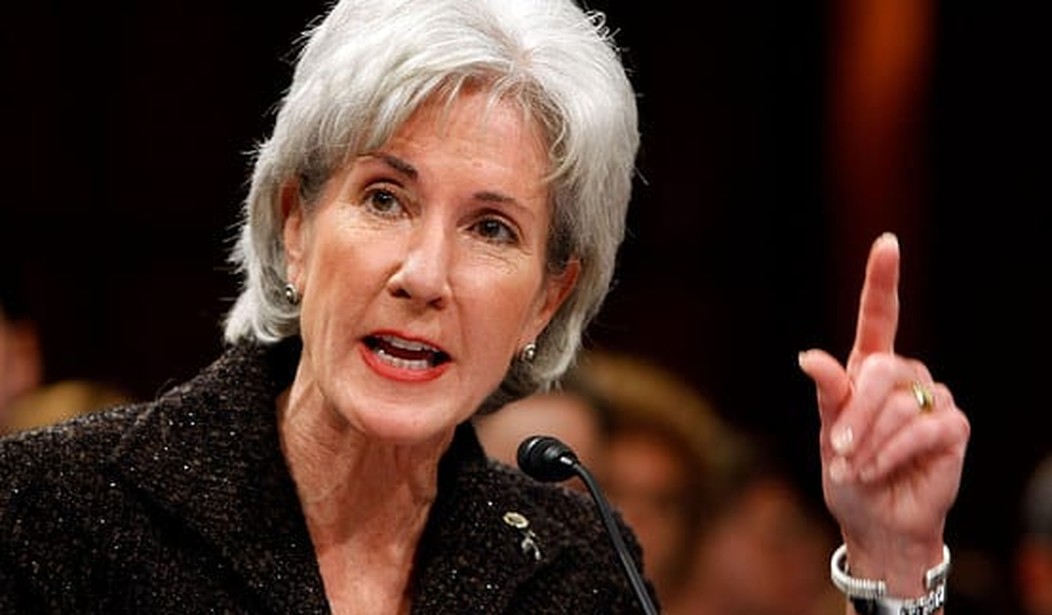Health and Human Services Secretary Kathleen Sebelius announced that the federal government has awarded nearly $32 million in grants to states for identifying and enrolling children in Medicaid or the Children’s Health Insurance Program (CHIP).
Sebelius added that this outreach would provide “great guidance” for HHS in signing up adults for coverage under Obamacare.
“We knew that expanding access to coverage wasn’t enough,” she said when announcing the grants, which are part of the Affordable Care Act, on a Tuesday conference call.
“About four out of five of those uninsured children were already eligible for coverage through Medicaid or CHIP and we had to take more steps to find them and get them enrolled.”
Sebelius said the partnerships on the initiative would take place in 22 states.
Her announcement came on the same day the Obama administration decided to delay the healthcare law’s employer mandate until 2015. The law requires businesses with more than 50 employees to provide health insurance for their workers or pay a fine.
“We have heard concerns about the complexity of the requirements and the need for more time to implement them effectively. We recognize that the vast majority of businesses that will need to do this reporting already provide health insurance to their workers, and we want to make sure it is easy for others to do so,” wrote Mark J. Mazur, assistant secretary for tax policy, on the Treasury Department’s website.
“We have listened to your feedback. And we are taking action. The Administration is announcing that it will provide an additional year before the ACA mandatory employer and insurer reporting requirements begin.”
The penalty totals $2,000 for each employee without coverage.
“Obamacare costs too much and it isn’t working the way the administration promised,” Senate Minority Leader Mitch McConnell (R-Ky.) said. “And while the White House seems to slowly be admitting what Americans already know, and what I hear consistently in my travels around Kentucky regarding the regulatory burden on employers, the fact remains that Obamacare needs to be repealed and replaced with common-sense reforms that actually lower costs for Americans.”
House Oversight and Government Reform Committee Chairman Darrell Issa (R-Calif.) questioned whether President Obama had the authority to issue the delay without the approval of Congress.
“This is another in a string of extra legal actions taken by his administration to mask the horrible impact his law will have on the economy and healthcare in the United States,” Issa said.
So far, many states have refused to implement parts of the healthcare law. For example, the Democratic-controlled Senate in Massachusetts is currently at odds with the federal law’s effect on the state economy.
“The commonwealth, by and through the governor or the governor’s designee, shall formally request a federal waiver to avoid the adverse effects of rating and rule changes to the Massachusetts merged market, to protect consumers and businesses in the commonwealth and in an effort to maintain current Massachusetts rating and rule requirements,” says legislation passed by the state Senate.
“All negotiations with any federal agency concerning this waiver shall be conducted in consultation with a member of the house of representatives as appointed by the speaker of the house and a member of the senate as appointed by the senate president.”
Pennsylvania State Rep. Matt Baker, the chairman of the House Health Committee, said Pennsylvania would not implement Medicaid expansion under Obamacare due to fiscal issues.
“Medicaid is a public assistance program administered by the Pennsylvania Department of Public Welfare (DPW). The system has many problems meeting the health care needs of the 2.2 million children, disabled, elderly and single mothers who are currently enrolled in the program,” said a press release from Baker’s office on Monday.
“Forty percent of the entire state budget is already being dedicated to DPW, and Medicaid is costing approximately $600 million more per year to meet existing program costs.”
Baker said the state would be “foolish” to trust the federal government’s “assurances” of payments to cover the Medicaid expansion costs.
“Adding up to 800,000 able-bodied adults to the public Medicaid system that would put one in four people on public assistance within DPW could potentially cost up to $4 billion by year 2020 and siphon critical funding away from education or other important programs and services,” Baker said.
“Although the federal government is trying to woo states into expansion with the promise of federal payments to cover the bulk of the costs for the program in the beginning years, we would be foolish to blindly trust such assurances.”
Despite many states’ challenges coping with the law and the employer mandate setback, Sebelius said a “new health insurance marketplace” would open across the country on Oct. 1, a key part of the healthcare law.
“Over the next few months, we’ll be working with partners across the country to let people know about the new coverage options coming their way this fall,” she said.
“Our success in getting kids signed up for Medicaid and CHIP will provide great guidance as we embark on the historic effort we’ll see in the months ahead.”









Join the conversation as a VIP Member